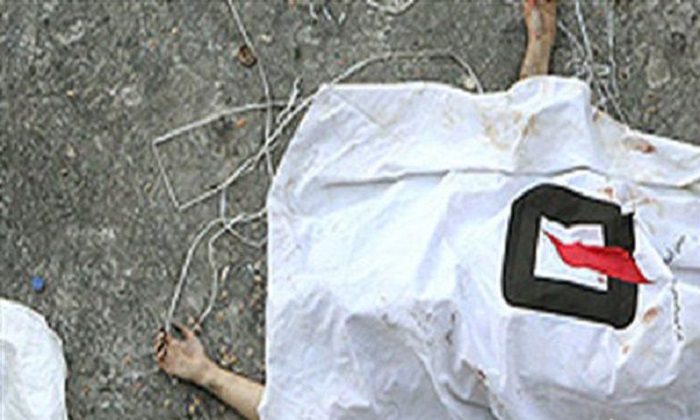An Appeal to Rid Ourselves of the Term “Azari”

Written by
Farzin Farzad
 It has over time become a popular trend for many ethnic Azerbaijani-Turks in Iran and the diaspora to refer to themselves as “Azari” in an effort to distinguish themselves from their ethnic kin in the Republic of Azerbaijan (RoA), and to slowly erode their ethno-linguistic links to the Turkic world. Many would claim that “Azari” is nothing more of a shorthand for the cumbersome term “Azerbaijani,” and that the term Azeri is even used in the Republic of Azerbaijan. However, slight the distinction between the “a” and the “e” in Azari and Azeri is, it has a long and troublesome history rooted in colonialism, and Persian nationalism reforms of the Pahlavid era and the years immediately preceding it.
It has over time become a popular trend for many ethnic Azerbaijani-Turks in Iran and the diaspora to refer to themselves as “Azari” in an effort to distinguish themselves from their ethnic kin in the Republic of Azerbaijan (RoA), and to slowly erode their ethno-linguistic links to the Turkic world. Many would claim that “Azari” is nothing more of a shorthand for the cumbersome term “Azerbaijani,” and that the term Azeri is even used in the Republic of Azerbaijan. However, slight the distinction between the “a” and the “e” in Azari and Azeri is, it has a long and troublesome history rooted in colonialism, and Persian nationalism reforms of the Pahlavid era and the years immediately preceding it.
It was the historian Ahmad Kasravi in the early 20th century that began doing historical research into an early Persianite group whom he referred to as the ancient “Azari” people that predated the Turkic conquests of Azerbaijan, in what is now Northwestern Iran. Kasravi falsely made a historical link between the Turkic Azerbaijanis of today and the disappeared Azari Persianite group of the past. His pseudo-history has been used by subsequent governments and state historians alike to re-imagine the Azerbaijani-Turkic identity to one that has always been Persian. However, without getting into the deeply complex millennia-old history of the various Turkic tribes migrating to the region, settling, and developing the cultural heritage of what would today become the Azerbaijani-Turkic nation, one can say that Kasravi’s history simply served a purpose at the time. His aim was to integrate the many nations that made up Persia/Iran into a cohesive and functioning state. His historical revisionism became accepted widely and today’s Azerbaijanis are suffering a crisis of identity because of it.
The term Azerbaijani is also relatively new. Traditionally who we call Azerbaijanis today have in the past been referred to as Tatars by Russians and Turks by Persians. Azerbaijan had been the Persian term for the land that this ethnic group inhabited. In Iran, this group eventually came to be known as the Turks of Azerbaijan or Azerbaijani Turks. Azari was never used to describe this ethnicity prior to historical revisionism. After Kasravi, the term Azari entered the Iranian lexicon and, as intended, the Turkic identity slowly began to disappear. New drives for an Iranian nation-state identity, coupled with several attempts at Azerbaijani independence (with fear of support from Turkey and Soviet Azerbaijan), were enough to make sure that Iranian history would be rewritten to completely eradicate any form of kinship that the Azerbaijanis had with their northern brethren, who were split from them during the Russo-Persian Wars. The Pahlavid dynasty had succeeded to a certain extent, but there were many people determined to keep this Turkic language and culture alive and well in Iran, despite the severe restrictions and forced assimilation policies.
Some modest gains have been made for the cultural and linguistic rights of Iranian ethnic groups, and with that Azerbaijanis are slowly being recognized as a distinct ethnicity. However, this is within a level of comfort that Iranian society, including the diaspora, deems fit.
Nowadays, most of what we see being portrayed among Azerbaijani-Turks in Iran as Azerbaijani culture is a mere surface-level and “safe” caricature of true Azerbaijani heritage. It serves as nothing more than exploitation. It is Azerbaijanis themselves who are the worst at this. They tend to take the least-threatening aspects of the Azerbaijani identity and balloon those items into something of a false depiction of Azerbaijani culture under the “Azari” name. “Azari” and “Azarbaijan” have become renewed attempts to rip apart the Turkic identity of ethnic Azerbaijanis-Turks and place the same distinction with their ethnic kin in the RoA as Kasravi had attempted in the past. With this term, Azerbaijanis are playing into their own cultural appropriation and eventual cultural assimilation.
Once one speaks of true issues facing the Azerbaijani community–such as language and cultural rights, economic opportunities, and adequate political representation–these same people who are proud of their “Azari” heritage snap back into their comfort bubble by emphasizing the joyously deceptive “We are all Iranians/Persians” colloquialism that has come to do more damage than good. However, if these same Azerbaijanis want to make a particular cuisine, dance, or any cultural item sound exotic, they will refer to it as “Azari,” and pepper it with tastes and sounds that are comforting to the Iranian palette. This practice is what has eroded the Azerbaijani culture over the past two centuries and why many people believe that Azerbaijanis are so assimilated into Persian culture that there is no turning back. Azerbaijani-Turks must learn to rid themselves of the toxic “Azari” term and embrace all aspects of their identity, both the gleeful culture and the history that they’ve tried desperately to hide.























